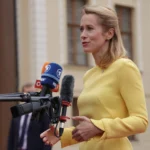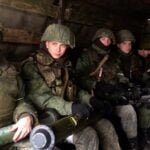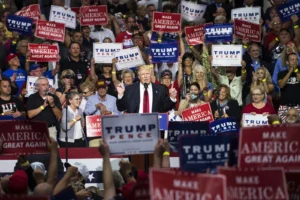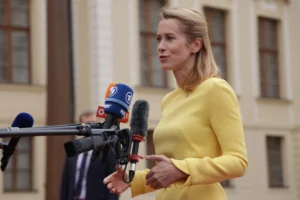NATO membership is the only true deterrent against Russian aggression—and bringing Ukraine into the alliance is the only real option for Ukraine and for wider European security. Yet, as the NATO Vilnius summit confirmed, key allies including the United States and Germany are not ready to commit, so this is off the table, at least in the short term.
By removing the Membership Action Plan requirement, the summit communiqué confirmed that any decision on a future alliance will be political, not technocratic. But with no defined criteria for entry, Ukraine’s fate is at the whim of allies. This is, however, also a major opportunity. If political obstacles can be properly addressed and allies persuaded of the merits of enlargement, Ukraine will be able to join.
In the meantime, however, willing European states need an interim solution for the period after the cessation of violence in Ukraine. Counterintuitively, formalizing and announcing such a solution as soon as possible—while the war is still raging—could potentially shorten the conflict. Though Russia would have an incentive to prolong the fighting to avoid the new arrangement coming into effect, the Kremlin’s theory of victory is based on outlasting Western support for Ukraine. A clear interim security commitment would show this to be futile.
To be effective, any such solution needs to fit multiple criteria. It needs to deter Russia from attempting a repeat attack, thus protecting Ukrainians and underwriting the investment needed for their country’s recovery. Second, it needs to bolster European security more broadly to give allies greater incentive to stick to it. And third, it needs to facilitate Ukraine’s entry into NATO—rather than being an alternative to it—by addressing the obstacles that lie in Kyiv’s path.
Those obstacles are political. To be sure, more and more allies have come around to the view that getting Ukraine into NATO is necessary to avoid creating again a dangerous gray zone in the medium term. France is a high-profile recent convert, and all allies reaffirmed their commitment to Ukraine joining the alliance in principle. In practice, however, there is reluctance in key alliance capitals including Washington and Berlin. Both ostensibly want to avoid escalation or getting entangled in a direct conflict with Russia.
Yet Ukraine’s alliance membership runs no such risk. Senior alliance figures have confirmed that NATO believes it has effectively deterred Russia. As a result, NATO allies have repeatedly crossed Moscow’s supposed red lines by supplying Ukraine with heavy weapons, without suffering direct reprisals.
But one genuine problem, from Washington’s perspective, is the relatively light contribution of European allies to their own collective security, despite increases in defense spending in countries like Germany. In light of America’s responsibilities in the Indo-Pacific, the Biden administration is understandably wary of taking the burden of an additional defense commitment—to Ukraine—that, even though Europeans are more directly affected, would fall mainly on the United States.
Breaking this impasse requires an interim solution that can overcome these obstacles. Of all the proposals on the table, only enlarging the Joint Expeditionary Force (JEF) mini-alliance fits the bill, as it would upgrade European defense in the long run while providing an immediately credible security offer to Ukraine.
The JEF was established in 2014 as a U.K.-led NATO framework nation initiative: a group of allies clustered around and working closely together with a large NATO power. It quickly established a reputation for being fast, flexible, and capable and grew beyond its initial power projection mission into more generally ensuring mutual security between its members. It brings together the formidable capabilities of the United Kingdom, the Baltic States, the Netherlands, and the Nordic countries—and has experience of combining NATO and non-NATO members (previously Finland and still Sweden).
Many JEF members—and Poland—strongly support Ukraine’s NATO membership, and several were among the states pushing for stronger language in the Vilnius communiqué. This makes it easier to imagine the group extending an all-important mutual defense offer from the member states to Kyiv. The enlarged JEF would be anchored by the U.K., and its members wield impressive collective air power. Combining this with Poland and Ukraine’s large, capable ground forces, the latter of which are battle-hardened, would make it a credible deterrent force.
The JEF’s modus operandi of conducting frequent joint training exercises and maneuvers would see troops from the involved states in Ukraine, which would act as a “tripwire” deterrent to Russian aggression. And the willingness seems to be there. As British Defense Secretary Ben Wallace said in Vilnius, “You could expect more British troops in Ukraine after this conflict than you did before.”
Source : Foreign Policy

















Add Comment